The Leading Edge: July 2024 Wind Energy Newsletter
In this issue, NREL highlights new wind videos, offshore wind report, wind turbine study, and more.
Upwind: Featured News
New Videos Illuminate Wind Energy Basics and NREL’s Role in Wind Energy Innovation
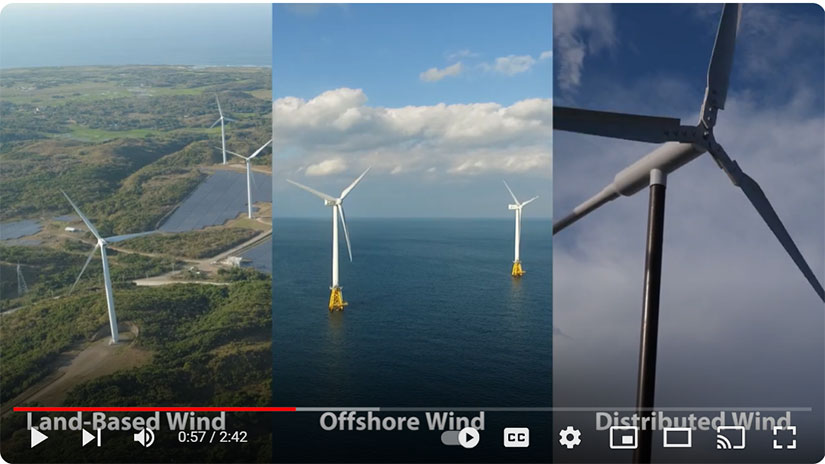
What do wind turbines and airplanes have in common? What are the different types of wind energy? What is the National Renewable Energy Laboratory (NREL) doing to propel wind energy innovation forward—and how can organizations join these efforts? Two new videos from NREL’s wind energy program answer those questions. Our new and improved Wind Energy Basics video on YouTube offers a foundational explanation of wind energy technology, covering land-based, offshore, and distributed wind energy. Also on YouTube, NREL’s Role In Wind Energy explains how the lab has been a pioneering force in global wind energy since the late 1970s, leading research in plantwide control, grid integration, environmental and wildlife impacts, workforce development, offshore wind, and hybrid energy systems, with its successes contributing to the deployment of ground-breaking products worldwide.
Report Offers Guide To Transmitting Gulf of Mexico’s Ample Offshore Wind Energy to Shore
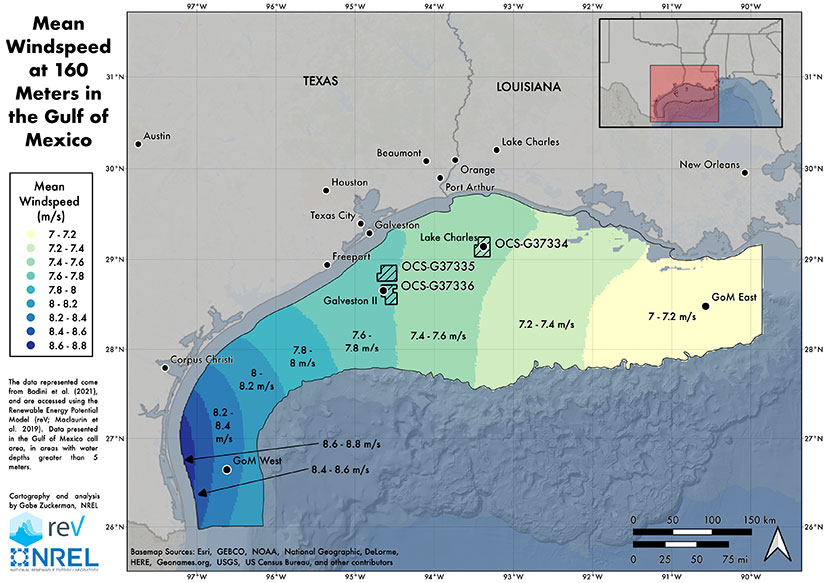
Winds blowing across the Gulf of Mexico could provide ample and reliable clean energy to communities in Florida, Alabama, Mississippi, Louisiana, and Texas. But transmitting all that offshore energy to shore will likely require coordinated planning, according to a new NREL report, Gulf of Mexico Offshore Wind Transmission Literature Review and Gaps Analysis. In their report, NREL researchers summarize opportunities and challenges associated with transmitting offshore wind energy from the Gulf of Mexico to on land customers (for example, the oil and gas industry’s existing infrastructure and workers could support the growing offshore wind energy industry). The team’s findings could help guide future transmission planning and meet regional clean energy needs.
Behind the Blades
Behind the Blades: Cory Frontin Finds His Rhythm in Renewable Energy
Meet Cory Frontin, a musician turned mechanical engineer researcher focusing on balancing
the cost and effectiveness of renewable energy solutions.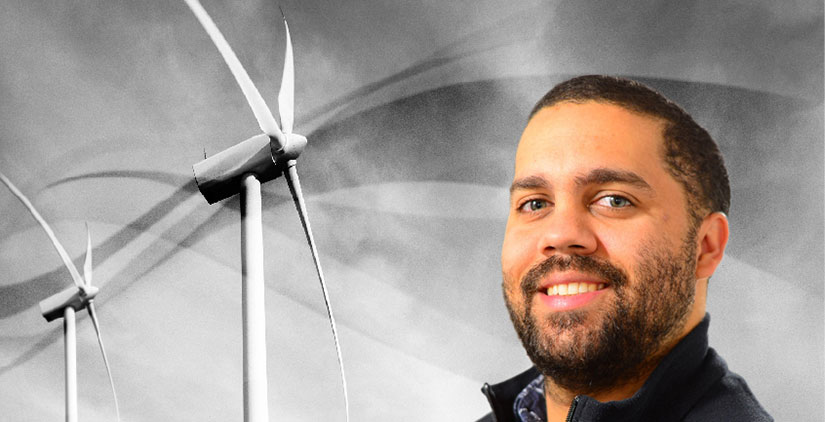
Cory Frontin was an accomplished saxophonist in his youth but switched to jazz guitar during his doctoral studies—a shift inspired by the pandemic and the realities of apartment living. The new musical pursuit allowed him to embrace learning without the pressure of prior expertise. This shift also mirrored his professional journey at NREL, where he embraced new challenges while building on existing knowledge.
Read the full interview with Cory Frontin to learn how, as an NREL mechanical engineering researcher, he focuses on developing efficient computational frameworks that maximize information from simulations, ultimately aiming to balance the cost and effectiveness of models in advancing renewable energy solutions.
On the Radar: Project Updates
NREL Team Completes Sweeping Validation Study of Downwind Turbine
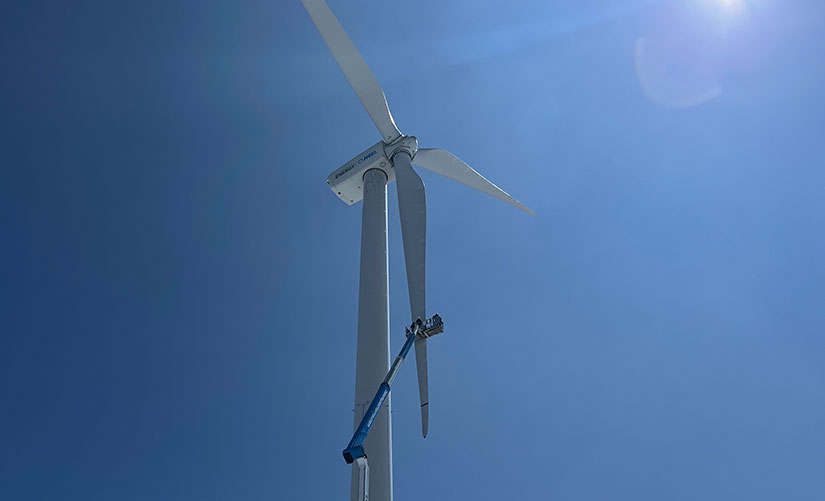
This spring, NREL researchers and colleagues from the Technical University of Denmark undertook a major experiment on the 1.5-MW wind turbine on NREL’s Flatirons Campus: turning the blades downwind. Part of the Big Adaptive Rotor (BAR) project funded by the U.S. Department of Energy’s Wind Energy Technologies Office, the experiment was designed to provide hard data on whether there is a cost benefit to running turbines with the rotor facing away from the wind, instead of upwind, as is typical of almost all of today’s commercial turbines. The study found that downwind operations produce audible noise and result in fatigue on the blades, which most likely make the scenario prohibitive for future designs. The experiment was key for testing the capabilities of the pressure sensors designed by the Technical University of Denmark, however, and proved that the sensors will be valuable for future measurements on upwind rotors.
Farmers, Rural Businesses To Harvest Benefits of New Project Selections
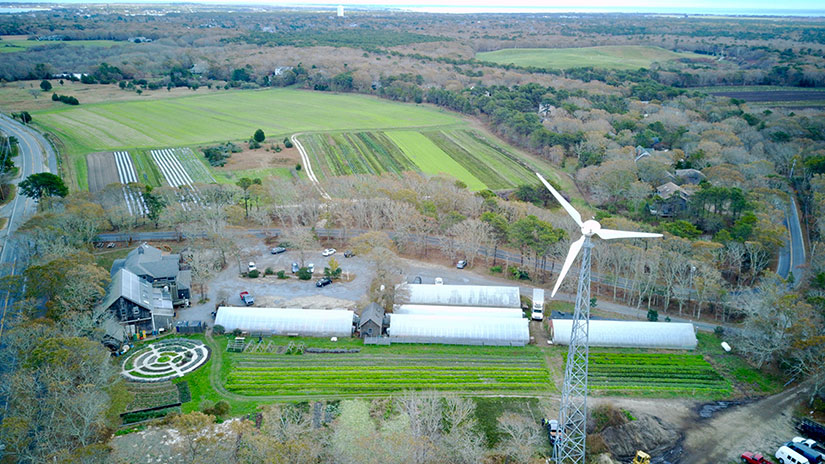
A new crop of Competitiveness Improvement Project award selections will benefit farmers and small rural businesses by focusing on how to remove market barriers to distributed wind turbine deployment in agricultural settings.
The U.S. Department of Energy (DOE) plans to award $3.2 million to 12 American component suppliers and manufacturers of small- and medium-sized wind turbines for 13 new competitiveness improvement projects. Targeting rural agriculture markets, the 2024 Competitiveness Improvement Project selections support the U.S. Department of Agriculture and DOE’s new Rural and Agricultural Income and Savings from Renewable Energy (RAISE) initiative, which supports distributed wind as part of the Biden-Harris administration’s clean energy goals.
NREL has managed competitiveness improvement projects on behalf of DOE’s Wind Energy Technologies Office since 2012.
Downwind: In Case You Missed It
Offshore Wind Energy Could Lower Cost To Produce Clean Hydrogen
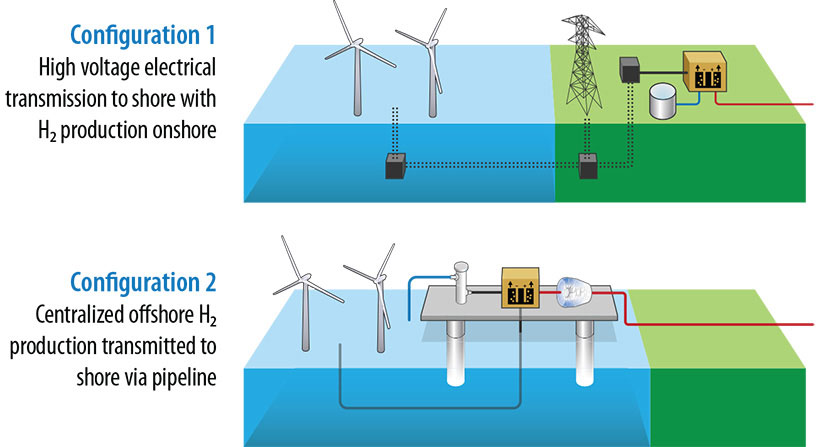
Clean hydrogen, which is produced with clean or renewable energy, could be a promising fuel source if researchers can find a way to lower its cost. Recently, a team of NREL experts discovered that using offshore wind turbines could be an economically viable way to power clean hydrogen production. In their new study, published in the Journal of Physics: Conference Series, the team found that wind turbines in regions with relatively shallow water and strong winds—like those along the Atlantic coast and in the Gulf of Mexico—could provide an especially promising option. According to the authors, offshore wind turbines could potentially help reduce the cost to produce clean hydrogen enough to make the fuel cost competitive with other, more carbon-intensive methods of hydrogen production.
NREL Plays Key Role in Premier Wind Energy Conference

The largest-ever contingent of NREL wind energy researchers attended the TORQUE 2024 conference in Florence, Italy, in May. Offshore Wind Energy Group Manager Amy Robertson gave the keynote speech, and Mechanical and Thermal Engineering Sciences Senior Research Fellow Paul Veers and National Wind Technology Center researchers Ian Baring-Gould and Jason Jonkman served on panel discussions. National Wind Technology Center researchers Aliza Abraham, Daniel Zalkind, Elenya Grant, Emina Maric, Ericka Lozon, Kaitlin Brunik, Matt Hall, Mayank Chetan, Paula Doubrawa, Pietro Bortolotti, and Regis Thedin also presented during the conference, and several others displayed posters. This biannual event, organized by the European Academy of Wind Energy, allows NREL researchers to showcase their impactful work to academic and industry partners while forging key connections for future work.
Upcoming Events, News Mentions, Recent Publications
Upcoming Events
2024 Sandia Blade Workshop
Sept. 16–20, 2024, Albuquerque, New Mexico
This workshop brings together wind industry experts, wind power plant stakeholders and operators, manufacturers, and researchers to network, address the major topics for wind turbine blades, and identify future technology pathways.
American Floating Offshore Wind Technical Summit
Sept. 24–25, 2024, Portland, Maine
Join leading experts at the American Floating Offshore Wind Technical Summit to address the drivers and challenges of developing the offshore wind industry in Maine and other Northeast states.
North American Wind Energy Academy/WindTech 2024 Conference
Oct. 30–Nov. 1, 2024, New Brunswick, New Jersey
The North American Wind Energy Academy/Wind Tech 2024 conference is taking place at the Hyatt Regency in New Brunswick, New Jersey, this fall. The event will feature software workshops, a graduate student symposium, and more than 20 scientific tracks.
News Mentions
Small-Scale Distributed Wind Projects Could Leave a Large Impact, CleanTechnica, July 18, 2024
NREL Researchers Say Offshore Wind Turbines Offer Path for Clean Hydrogen Production, Daily Energy Insider, July 16, 2024
New York Offshore Wind ‘Could Power Cost-Competitive Green Hydrogen by 2030,’ Recharge, July 15, 2024
U.S. Could Get Low-Cost Clean Hydrogen From Offshore Wind Farms: Study, Interesting Engineering, July 14, 2024
Offshore Wind Turbines Offer Path for Clean Hydrogen Production, Clean Technica, July 13, 2024
U.S. NREL: Offshore Wind Turbines Offer Path for Clean Hydrogen Production, Offshore Energy, July 12, 2024
State and Local Permitting Restrictions on Wind Energy Development, R Street Institute, July 10, 2024
Offshore Wind Leaders Project Confidence Amid Election Year Uncertainty, RTO Insider, June 23, 2024
Recent Publications
Analysis
Analysis of Lease Area Delineation Options in the Brookings Wind Energy Area, NREL Technical Report (2024)
Gulf of Mexico Offshore Wind Transmission—Literature Review and Gaps Analysis: Environmental Considerations, Community Readiness, and Infrastructure, NREL Technical Report (2024)
Modeling and Validation
Large-Eddy Simulations of Turbulent Wake Flows Behind Helical- and Straight-Bladed Vertical Axis Wind Turbines Rotating at Low Tip Speed Ratios, Physical Review Fluids (2024)
Shared Mooring System Designs and Cost Estimates for Wave Energy Arrays, Renewable Energy (2024)
Technology Innovation
Wind Farm Structural Response and Wake Dynamics for an Evolving Stable Boundary Layer: Computational and Experimental Comparisons, European Academy of Wind Energy (2024)
Want More?
Subscribe to The Leading Edge newsletter, and explore the latest news and accomplishments in wind energy at NREL.
Share

